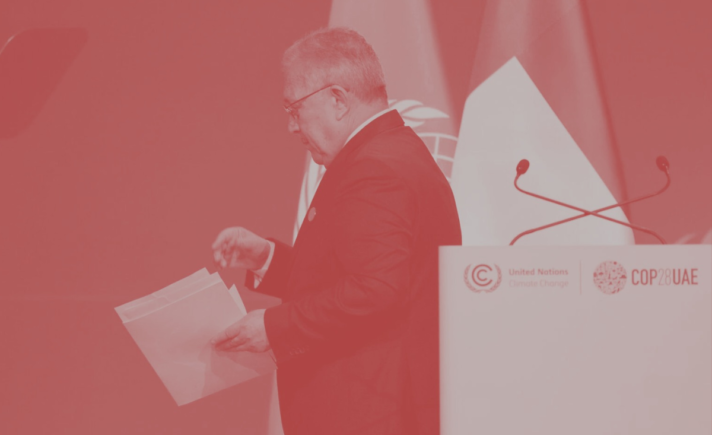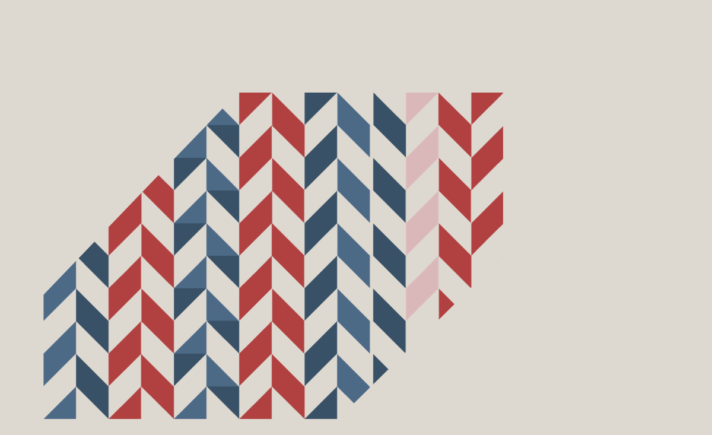The Syrian women of Suwayda have been at the forefront of the recent uprising centered around Al-Karama square. We see their banners and their initiatives, and hear their songs and chants. Their presence, to many, has become the essence of this uprising. The following interviews offer a less talked about perspective, to help us deepen our understanding of their demands and further humanize their experiences.
In separate interviews, I spoke to four women with varying levels of participation in the uprising. By asking mostly personal questions, I aimed to reveal their hopes, their fears, and their views regarding the role of women in this uprising and the likes of it.
Fear, hope and change
Iman is a protester involved in organizing initiatives in the square. When asked why she goes to the protests, she tells me: “Change is my cause, so I simply cannot be absent. The people no longer have anything to lose, and the core of their demands is patriotic, so I have to be there”.
Another protester, who prefers to go by her initials, HH, tells me that she agrees with most of the demands in the square, but disagrees with certain individuals who seem to have separatist or violent agendas in mind: she attends the protests to contribute to the weight of support for national demands concerning all Syrians.
In 2011, peaceful protests broke out across Syria demanding government reforms. The protests were met with live ammunition, and the situation soon evolved into a civil war, then a proxy war involving numerous regional and international players. This year, with Assad and his government still in power, the Syrian people still experience countless violations of their human rights and dignities. In August this year, after fuel prices doubled overnight, peaceful protests broke out in Suwayda, mainly demanding the enforcement of UN Resolution 2254, which calls for a ceasefire, political transition, granting access to humanitarian organizations, and accountability.
When asked what they are afraid of, a response shared by all the women I interviewed was the fear of autocracy and of further division. At the heart the Suwayda uprising is a call for unity and solidarity: as such, all of them believe in a solution for Syria as a whole, and are concerned by the prospects of further political fragmentation – as well as regime retaliation.
“I’m scared of being ignored”, says Hanan, who has been protesting and organizing protests daily. “We’ve been living a tragedy in Syria for the past 12 years. The destruction, the killing, the bombing, the use of chemical weapons, the displacement… Until today, nobody in the world batted an eye, be it the United Nations and its Security Council, or human rights organizations. It’s all paperwork and negotiations. These are the parties we want to pressure with our peaceful protests, and I hope that they don’t ignore us this time,” she adds.
Iman, in contrast, tells me that she is not afraid. “But there are some dangerous possibilities,” she concedes, “one of which is the regime silencing the people with empty promises. This silence, and the prospect of staying under the rule of this regime, are more dangerous than facing the unknown.”
Criticisms and concerns
There has been some criticism of the uprising from inside and outside of the protest squares, especially regarding the lack of political forums and conversations taking place. The protesters in Suwayda have united under common aims, but individual protesters hold diverse opinions, concerns and hopes about the future of the movement. I ask the women if they have any specific criticism of the protests, or what they might hope to change about the ongoing protests.
“I wouldn’t change anything,” Hanan says, “I would just develop it, and try to gain more participation in the square.” HH, on the other hand, expresses a specific criticism of the protests’ symbolism: “I don’t think there should be any flags because they can be controversial or misunderstood,” she explains. “I also don’t think there should be any pictures or chants for living people in the square, unless they are forcibly disappeared or detained. We don’t need more deification.”
It is worth noting that since 1970, the year Hafez al-Assad became president, there has never been an occasion where such consistent and populous demonstrations have been held without being met with violence. In that regard, Suwayda is witnessing a first. Iman offers her hopes for the future development of the protests and for the new generation.
“We mustn’t forget that we’ve been suffocated for 60 years,” she reflects, “so there is a danger that those who have never had the chance to publicly express themselves might be misunderstood. They say the road to hell is paved with good intentions. The deliberate emptying of the Syrian political climate has produced a host of contradicting opinions, but we all agree on the fact that we are oppressed and deprived of a democratic country. We don’t even know what democracy is, because we never lived it. So the change that I’d like the protests to bring about is an increase in political awareness, and greater faith in that awareness. But more than this, the change I desire is for the new generation to be at the forefront of this movement.”
In such an unstable political climate, concerns and uncertainties are widespread. When asked about how she sees the situation unfolding, HH expresses optimism with what the movement has achieved so far.
“I can’t tell if I’m seeing things realistically, or if it’s wishful thinking,” she says, “but I think the uprising may end up fulfilling all its goals in the long run, or part of them. It has already achieved good results. The fact that people are no longer afraid is very important: I’m seeing children in the streets chanting against the government like adults would in protests, which shows that people now feel they can do things they couldn’t do before. That’s a good thing.”
“The uprising has also rid Suwayda of the photos and statues of Assad that were all over the place. That in itself is a big achievement,” she adds. “But we can’t ignore that some things are not in the hands of the people. We can certainly make a big difference in how people view the region and the Syrian cause, but we can’t guarantee the extent of this change given the premeditated agendas of powerful countries.”
Women, men and the movement’s potential
With regard to the way men are perceiving the female presence in the square, HH has this to say:
“Right now, the women in protests and organizing groups are true decision makers. And there are some men who comprehend this completely and consider it normal. Some others see it from the perspective of nakhwat, the idea that women encourage the fervor and rage of men to participate and take a stance inside or outside the square; and other men are just going along with it because they see the world and media outlets focusing on the role of women. Men are not a homogenous mass, but generally speaking, women have managed to assert their presence on the movement, and have managed to receive support and recognition from a much larger percentage of men than they did before.”
Another protestor who prefers to use her initials, SN, relates experiences with men in the demonstrations. “Some men tell us things like ‘We respect you’ and ‘This uprising wouldn’t have happened without you’ – but the one time I decided to take a silent stance in the square, one of them approached me and said, ‘What’s up with you women today? What’s the issue? We come to the square to watch you!’ I replied, ‘Is that so? And how do you like our performance? Is it entertaining you?’ So, there are people like this too. Their existence is normal, for sure, but what matters to me is us – women. Those other people will fall by the wayside.”
In recent weeks, the uprising has witnessed solidarity with Palestine and the victims of the indiscriminate bombing and displacement in Gaza, with many protesters drawing parallels between the Israeli occupation and the Syrian government. Many banners compare Gaza to Idlib, which has been facing airstrikes by the Russian-backed Syrian regime. Women’s presence in these acts of solidarity is prominent, and their messages show a clear appeal to humanity.
I conclude the interviews with each of the protesters by asking: “How can women make a difference?” The four women have four distinct perspectives.
“We definitely can make a difference,” says SN, “and we have done so in our previous initiatives, for example by writing songs (although at one point I wanted less of that, because it was starting to turn into a festival!) We plan and coordinate most of the initiatives in the square, and the men see only the product. We’re also running the transportation between the city and the villages. Whenever there’s an evening protest in one of the villages, I get contacted since I’m the one who provides the buses and pays for them from the donations of women in the uprising.”
“Women’s tools are different to men’s, be it in politics or other fields,” adds Iman. “We haven’t seen any armed women in this area, and no female militias. Women lean more towards non-violence. And the peacefulness of this uprising stems from the presence of these women. No issue can be resolved without women – and any freedom or political demand that doesn’t include women is useless.”
Hanan elaborates on more specific goals: “Now we, as women, have been working on specific issues. We have 8 issues that we’re trying to talk about over the course of these 8 weeks, under the slogan ‘We Won’t Forget’: the detainees, the use of chemical weapons, random bombing, the martyrs, the forced displacement, mass migration, Captagon, and internal victims. So we’re trying to highlight these issues and deliver the message without hurting or scaring people away. We women tend to be more emotional, and like to present a good image; and those of us who are mothers try to express, with our banners and initiatives, the peace and the future we desire for our children.”
HH’s answer is a little more conflicted. “This idea creates a dilemma for me, the question of whether women are special cases or not,” she says. “Women are part of society, and they should have an active role like anyone else. Men, women, and any element of society, regardless of differences of categorization, should be present and active to the extent that they believe is suited to their abilities. Sometimes I think that this is normal, but other times I feel that in Middle Eastern societies, the presence of women has not been as noticeable as it should be.”
“Because of this, the scale of women’s presence and action is slightly changing the view towards the Suwayda protests – the fact that this uprising includes women just as it includes men makes it more acceptable to other groups in the world. Women also make a difference because, throughout history, a notion has been enforced that they are mothers and are emotional: in one way or another, this means their messages are more peaceful and relaxed than those of men. This can make a difference.”
After more than two months of daily protests with no response from the government, the future of this uprising is unclear. But even if the people of Suwayda become exhausted and frustrated, and even if the protests stop, the political awareness and hope this uprising has created will remain. Today is an extension of 2011, and the children raised by the women of Al-Karama will have the streets and squares paved for another, more fearless uprising.





